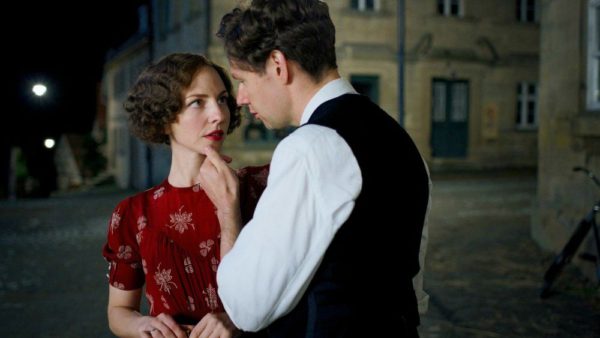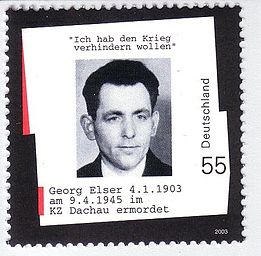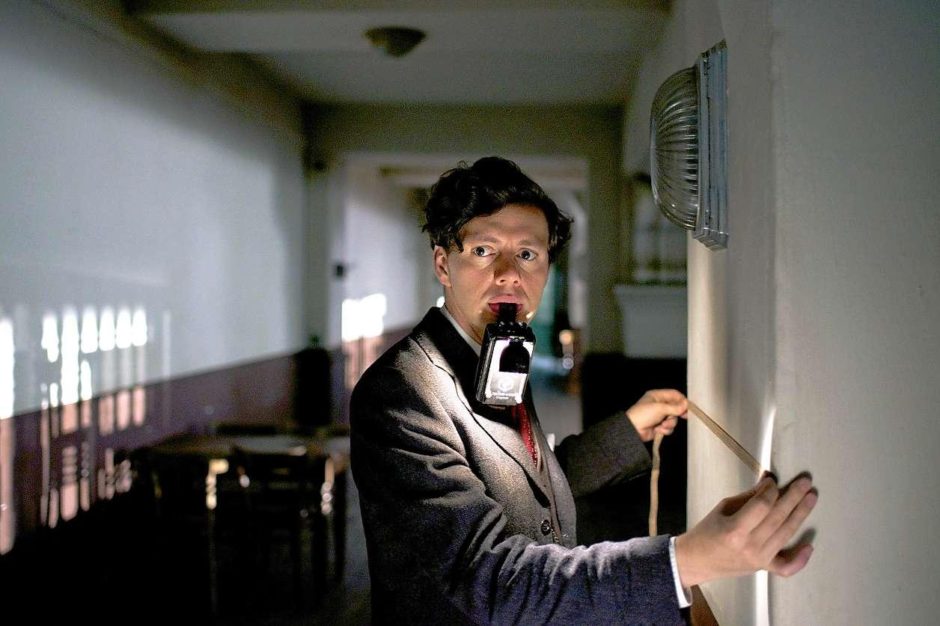One of the most serious assassination attempts on Adolf Hitler’s life took place on November 8, 1939, when a time bomb assembled by Georg Elser exploded in a fabled beer hall in Munich, just two months after the outbreak of World War II.
Elser, a factory worker and carpenter from southern Germany, was a Communist sympathizer whose goal was to kill the Nazi leadership in one fell swoop. Hitler and his entourage of top-ranking Nazis left the building 13 minutes before the bomb was due to detonate, thereby thwarting Elser’s ambitions to change the course of history.
This intriguing footnote in the annals of the Third Reich is tautly explored in 13 Minutes, a German feature film by Oliver Hirschbiegel due to open in Canada on July 7.

It gets under way as Elser (Christian Friedel), a meticulous craftsman, finishes his sophisticated home-made explosive device. As he tighten screws and makes last-minute adjustments, he perspires, groans and pants. Elser is nervous, knowing full well he has a date with destiny.
The bomb goes off as planned, sending a plume of smoke into the night sky, but the only ones killed by the blast are innocent bystanders, a turn of events that induces guilt in Elser.
Attempting to sneak into neutral Switzerland following the explosion, Elser is detained by German border guards and locked up in a police cell. His ex-wife is later taken into custody.
At this juncture, 13 Minutes flashes back to 1932 as Elser and his first girlfriend frolic in the waters of Lake Constance. The film then fast forwards to 1939. Elser is being interrogated by two Nazis — Arthur Nebe (Burghart Klaussner), the head of the German criminal police and a future commander of an Einsatzgruppen mobile killing squad in Belarus, and Heinrich Muller (Johann von Bulow), a Gestapo officer.
They demand a written confession from Elser, but he refuses to cooperate. He’s whipped and tortured, but he holds out. Strong and courageous, Elser will not reveal the details of his plot. He relents only after Muller threatens to arrest his girlfriend, Elsa (Katharina Schuttler), a married women with children.

The movie, ably directed by Hirschbiegel, constantly jumps back and forth in time. In one scene, Muller expresses certainty that Elser is not a lone wolf, a theory Nebe tries to refute. In another scene, Elser begins an affair with Elsa. It’s a red-hot romance from the outset, but when her brutish husband discovers they’ve been intimate, he throws a temper tantrum, threatening to kill them both.
Elser’s dislike of Nazism is rooted in his belief that Hitler’s regime is “bad” for Germany. He’s appalled by the persecution of political dissidents, some of whom are his friends, and by the rampant antisemitism. Jews have been forbidden to enter his town, Konigsbronn. And a local German woman who’s had sexual relations with a Jewish man is forced to sit on the pavement with a demeaning sign around her neck.
13 Minutes moves along at a brisk pace, bristling with verve and energy. The characters, portrayed by a fine cast, are never less than interesting.

Elser, though commemorated by a German postage stamp 14 years ago, remains something of a cipher to this day. But in this arresting film, he’s vigorously brought to life thanks to Hirschbiegel’s deft direction and Friedel’s accomplished performance.
